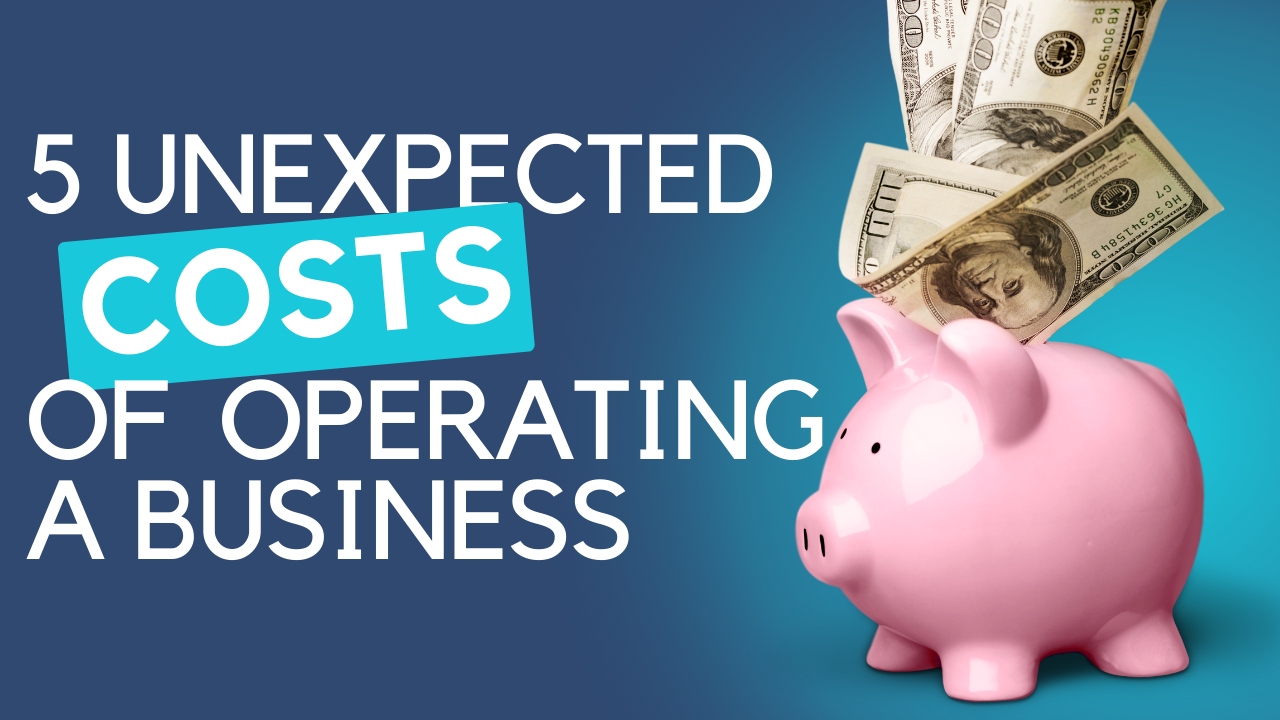5 Unexpected Costs of Operating a Business

"By failing to prepare, you are preparing to fail."
Unexpected costs when running a business are going to pop up at the worst possible time (think giant zit right before the big high school dance kind of timing). It doesn't matter how carefully and thoroughly you planned your budget – Murphy's Law guarantees the one expense you didn't account for is the one you're going to incur.
With that in mind, today, we're going to cover five unexpected costs you might encounter as a business owner. It's our way of giving you the upper hand…and giving ole Murphy the middle digit.
Equipment Failure & Maintenance
Nothing lasts forever, and at some point, everything from construction equipment, machinery, ovens, printers, and computers will need servicing or replaced altogether. Depending on the nature of your business, some of these will immediately negatively impact your bottom line. (If you have a print shop and your printers go up, you're in trouble.)
Consider This: What equipment is vital to keep your operation running? Make sure you have an emergency fund or access to capital to cover those costs.
Employees
More employees (hopefully) means business is good, and you need additional support to serve your customers. And while they might be helping you bring in more money, it also means you're putting out more money. It's not just wages but also the costs that come with hiring, training, taxes, and benefits you need to take into account.
Consider This: Reviewing and negotiating insurance options on an annual basis, focusing on employee retention through non-monetary incentives (see our post here for some ideas), and having a "fire fast, hire slow" approach to bring new people onto the team can help cut down on your overall expenses.
Payment Processing Fees
Who uses cash anymore? (Maybe Timmy for his roadside lemonade stand, but even then, his Mom probably has a Venmo account as a backup.) Every day we are one step closer to a cashless society, and while that makes it more convenient for both buyer and seller, it also comes with additional costs. Those small percentage fees that credit card vendors or Point of Sales systems charge may not seem like a lot, but they add up quickly – especially for small business owners.
Consider This: Do a little research and analysis to determine how much of your revenue is going to the process of collecting payment. See if there's any room for negotiation. (The worst they can say is no.) You could also think about adding a surcharge to offset the cost (if your state allows it) or offer ACH payments, as they are much less expensive for a business to accept.
Supplies & Inventory
There are myriad ways you can incur unexpected costs in this category - especially if you're providing a tangible product. First and foremost, the price of raw materials to make your product – or the product's cost- can change dramatically. That means you must decide whether you can afford to eat the extra expense or pass that on to your customers (and potentially lose out on sales.)
Additionally, inventory can be damaged or stolen, so even though you bought (and planned to sell) 100 custom-made bird baths, if three of them broke during the unloading process, you now only have 97 you can make money off of. (FYI: Having fewer items in stock than recorded in the inventory books is referred to as "shrinkage" and has nothing to do with that Seinfeld episode.)
Consider This: Obviously, be careful when handling inventory so you don't wind up with unusable bird baths. Evaluate your own prices for wiggle room in the event you need to raise them. Beyond that, make sure you're regularly reviewing the costs of supplies and goods. Negotiate if you're able, or look at alternative suppliers.
Professional Services
You might fancy yourself a one-stop shop for everything your business needs to operate, but the truth of the matter is, you're not - nor should you be. It's that whole "Jack of all trades, master of none" bit. You can't expect yourself to be an authority on everything from payroll to taxes to legal matters or IT. Sometimes you'll need to call in the professionals – and they will want to be compensated.
Consider This: Be proactive and make room in the budget so you can call on their help when you need it. The good news is that even though you are paying them for their services, they're really saving you money in the long run because, as experts, they will (hopefully) do it right the first time – unlike yourself, who may spend an excessive amount of time and energy trying to figure it out on your own.
You can't prepare for everything - but you can plan ahead. Keep these expenses on your radar, continuously evaluate what you're spending your money on, shop around for better policies and terms, speak to a financial expert, and focus on beefing up an emergency fund or getting access to capital to help with the unexpected. Every little bit helps.



